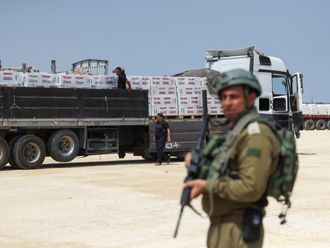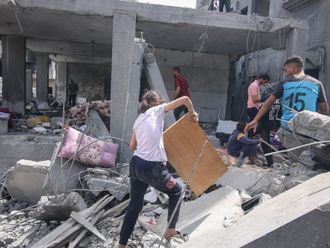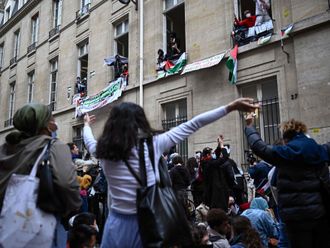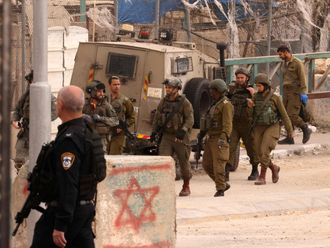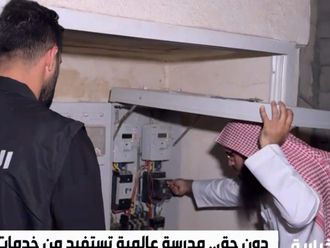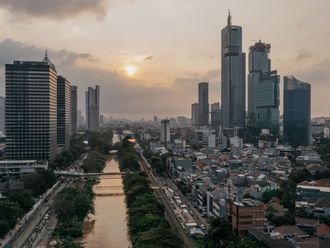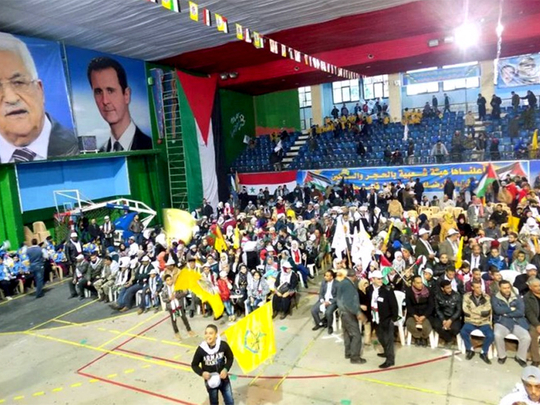
Beirut: For more than 30 years, Fatah billboards were banned in Syria, and so were photos of Palestinian Liberation Organisation (PLO) leader Yasser Arafat, a friend turned foe of former Syrian President Hafez Al Assad.
That troubled past is now becoming history as the Syrian government is relinquishing control back to the Palestinian National Authority of buildings, apartments, and bank assets seized during the Lebanese Civil War, back in 1983. They are reportedly worth millions of dollars and Palestinian officials are now free to sell, lease, or rent these properties, located in Rukn Al Deen, Yarmouk, and Al Zahira.
Palestinian assets, frozen for years in Syria, are also being released and photos of Yasser Arafat are returning to the streets of Palestinian neighbourhoods in the Syrian capital.
A new page is being turned in Syrian-Palestinian relations, thanks to efforts by Palestinian President Mahmud Abbas.
Most were overrun by Fatah defectors on Syrian payroll who tried and failed to topple Arafat during his years in Beirut.
Officially Fatah is now allowed to operate in Syria, at the request of its top chief Mahmud Abbas.
Abbas, better known in Arab circles as Abu Mazen, considers himself a good friend of Syria, having spent his childhood and early teens there, where he studied at Damascus University.
He still has nuclear family members based in Damascus, despite the five-year war that has displaced most of the country’s Palestinian community.
From mid-2011 he has called on Palestinian Syrians, especially members of Fatah to remain “completely neutral” in the Syrian conflict, saying that whether the regime leaves or stays in Damascus should be none of their business.
That didn’t work too well, as some took up arms with Ahmad Jibril, the Damascus-backed chairman of the Popular Front for the Liberation of Palestine-General Command (PFLP-GC) while others went full board into the hands of Daesh, overrunning the Palestinian refugee camp at Yarmouk in eastern Damascus.
For the past two years Abu Mazen has been personally supervising reconciliation attempts among Palestinians at Yarmouk, while coordinating closely with his Syrian counterpart.
Light arms were recently distributed to Palestinian teens from Fatah to man checkpoints and run security in certain streets of Yarmouk, alongside militants from the PFLP-GC.
Their job is to fight Daesh, Syrian Islamists, and Palestinian supporters of Hamas in Yarmouk, the military group that until 2011 was headquartered in the Syrian capital and then defected to Qatar, siding with the Syrian Muslim Brotherhood. The Damascus home of its chief Khaled Meshaal in West Mezzeh, an upscale neighbourhood of the Syrian capital, was seized after he appeared at a rally carrying the tri-color flag of the Syrian Opposition.
As relations improve in Damascus, Abbas remains heavily involved in secret talks with the Syrian Opposition, conducted mainly in Amman.
His interlocutors include Hassan Abdul Azim, head of the the Moscow-backed National Coordination Committees (NCC), and Mu’ath Al Khatib, former president of the pro-western Syrian National Coalition.
The talks, ongoing since 2013, were handled by Abu Mazen’s envoy Nidal Al Sabeh, the son of a former PLO bureau chief in Algeria and Sudan, and Abbas Zaki, a member of Fatah’s Central Committee, who is a frequent visitor to Damascus, carrying messages back and forth to Ramallah.
Abu Mazen has also tried building bridges between Damascus and Egyptian President Abdul Fattah Al Sissi.
In 2013, Abu Mazen met both Vladimir Putin and Barack Obama to discuss reconciliation in Syria, and reportedly tried talking the US president into dropping his demand that Al Assad does not run for any upcoming presidential elections—which was music to the ears of Damascus and Moscow. According to well informed Palestinian sources, Abu Mazen said: “Let’s wait for the results of the ballot boxes.” Adding warmth to Abu Mazen’s position in Damascus, the Palestinian leader welcomed Russian intervention in the Syria War last September and congratulated Al Assad on his re-election in the summer of 2014.


